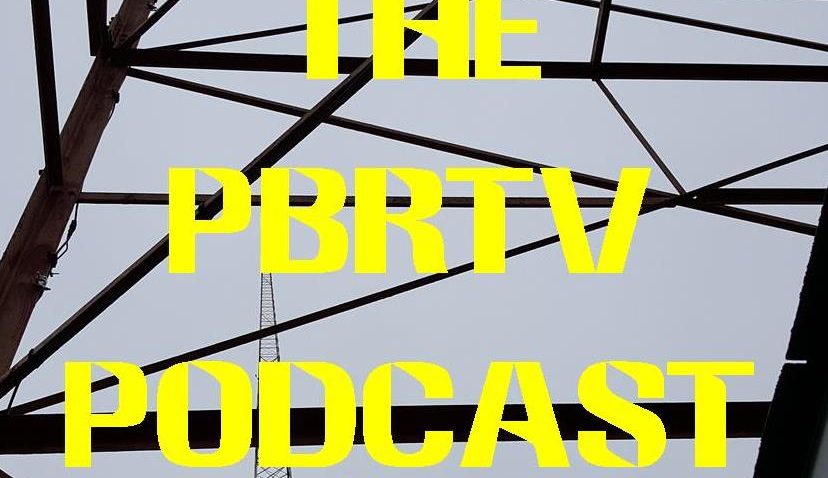Hard times for hockey fans
April 28, 2008. . .
WPGH’s weak UHF signal was difficult to receive in most of the Pittsburgh area, and most of the independent station’s schedule was comprised of black-and-white movies or returns of network shows.
Naturally, no one was too concerned about pre-empting programs on WPGH, because no one was watching the channel anyway.
Unfortunately, as the Penguins and the NHL found out to their unhappiness, few people were watching hockey, either. The team would change owners three times by 1971, when Pens’ games moved to WIIC-TV (11) under a three-year exclusive contract. The station aired about a dozen games each season.
. . .
Play-by-play on WIIC was handled primarily by the station’s sports director, Sam Nover, who had also called games for the NHL’s Red Wings in his native Detroit. (Nover took his job as “Voice of the Penguins” seriously. He got into an on-air feud with two Pittsburgh Press sportswriters during the 1971-72 season after they criticized the Penguins.)
Beginning in 1970, radio coverage was provided by KDKA (1020), with play-by-play from Penguins’ PR man Jim Forney, who had previously worked at WHP-TV in Harrisburg and WLAN radio in Lancaster.
A new broadcaster, Mike Lange, became the lead radio broadcaster during the 1974-75 season, but he was absent during the 1975-76 season, when the team entered bankruptcy.
. . .
That was also the year that Pens games moved to Pittsburgh’s new all-news radio station, KQV (1410), which became the radio flagship for one season.
The team was unhappy with KDKA’s continual pre-emption of Penguins games for Pirates baseball and Duquesne Dukes basketball. Gary Morrell handed the play-by-play duties that year, before moving to Los Angeles to take a TV news job.
Lange came back to the Penguins booth during the 1976-77 season, while former Pirates broadcaster Bob Prince joined the struggling hockey team as director of community relations … just in time for the games to return to the radio station that had fired the “Gunner,” KDKA.
Though he handled the TV play-by-play chores for two seasons, it quickly became obvious that Prince was better suited to baseball than hockey, and Forney became the Pens’ television voice for the 1978-79 season, when the games had moved back to WPGH. (Lange’s coverage would be simulcast on radio and TV, starting the next year.)
. . .
Speaking of Duquesne, Penguins broadcasts in the early years were sponsored by Duquesne Brewing Co., though “Duke” was no longer sold at the Civic Arena after December 1972. That’s when Duquesne’s parent company, Schmidt Brewing of Philadelphia, closed the brewery on Pittsburgh’s South Side.
While beer bearing the “Duke” label would continue to be sold in Pittsburgh for a while longer, the city-county Public Auditorium Authority passed an ordinance forbidding the arena from selling malt beverages not brewed in Allegheny County.
Yep, the 1970s were hard times for local beer drinkers. And with the games bouncing from station to station, and from announcer to announcer, those were also hard times for Penguins fans who wanted to follow the action on radio or TV.
Although Duquesne Beer is long gone, the Penguins are flying high, and with all-sports WBGG (970) and Fox Sports carrying the team’s entire schedule, it’s always a hockey night in Pittsburgh.
If you’re a Pens fan, maybe the “good old days” are right now!
Pittsburgh’s status as the ninth-largest TV market in the U.S. was a prime reason for locating one of six National Hockey League expansion franchises in the city.
 So said Joe Gordon, then public relations director for the brand-new Pittsburgh Penguins, in 1967.
So said Joe Gordon, then public relations director for the brand-new Pittsburgh Penguins, in 1967.
The other cities receiving expansion teams that season were Philadelphia, St. Louis, Minnesota, Los Angeles and San Francisco-Oakland.
The city’s reputation as “a good sports town” was the main reason Pittsburgh was selected for an NHL franchise, Gordon told the Charleroi Rotary Club. But he noted that the NHL planned to televise hockey games both locally and nationally, and “all six cities rank high in the TV market.”
Although cable TV was around in 1969, it mainly existed to carry over-the-air broadcasts to people who couldn’t receive them easily with an antenna. There was no ESPN (that channel wasn’t launched until 1979) and no Fox Sports, which launched in 1996.
. . .
You can talk about the “good old days,” but those early years were tough for the Penguins, who won only 27 games their first season.
And that season was marked by tragedy in the broadcast booth. While calling a Penguins game for CBS Radio on Christmas Day, sportscaster Tom Lynch collapsed and died of an apparent heart attack. Lynch, who worked for WPSL (1510) in Monroeville, was just 44.
Locally, WTAE-TV (4) carried the games during the Penguins’ first season, usually pre-empting what was then a weak ABC lineup. By 1969-70, however, the games were being shared between WTAE and WPGH-TV (53).

